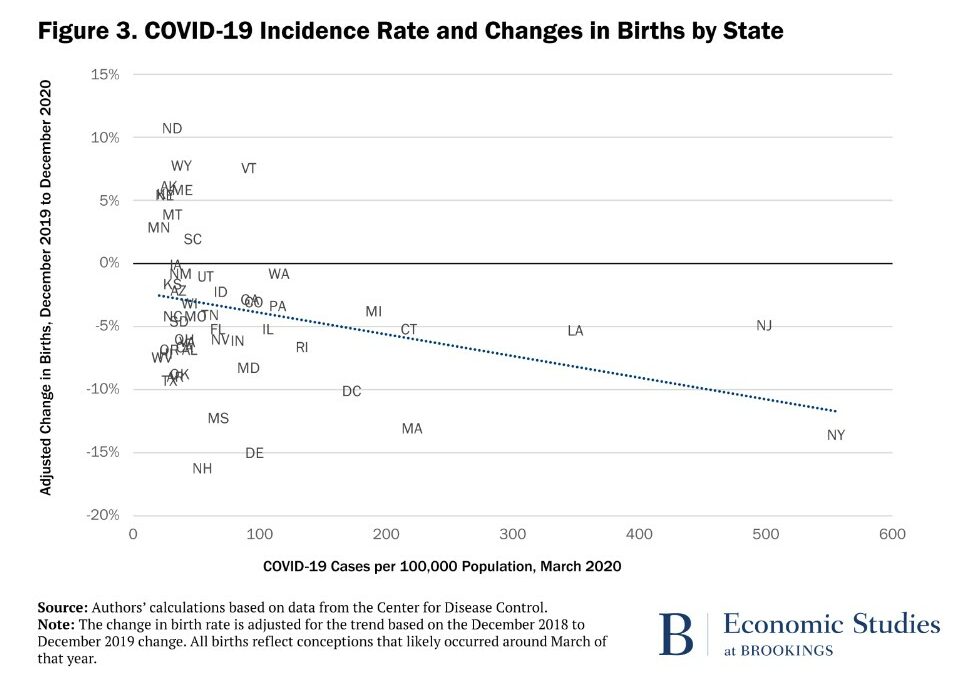An analysis of US births of babies conceived during the pandemic lockdown says births fell 3.7 percent, on average, across all states but fell an estimated 16% in New Hampshire, more than any other state.
Notably, the report says that while births fell sharply as the economic pain hit – bad financial times have always led to fewer births – they only fell half as much as they fell during the Great Recession of 2008.
“A one percentage point increase in the unemployment rate is associated with a 0.5 percentage point reduction in the birth rate. Strikingly, this is half the size of the relationship observed from the Great Recession. We speculate that the unprecedented government response, including the CARES Act, dampened the relationship between the unemployment rate and fertility behavior” say the authors of the Brookings Institution report. Read it here.
The study by the Brookings Institution, based on data recently released by the Centers for Disease Control, estimates the effect of COVID by comparing the number of babies born in December 2020, who would have been conceived as lockdowns began in March, against births in December 2019.
It found that births in New Hampshire fell by about 16%, more than in any other state. This happened even though New Hampshire’s rate of COVID-19 cases per 100,000 was average, indicating that many parents delayed having children not because they were sick but because of economic uncertainty.
Nationally, births declined the most among older women and more educated women. New Hampshire’s population is older and more educated than that of most states.
The study also said that the :the COVID baby bust should be considered in the context of a continued decline in U.S. birth rates. “The hundreds of thousands of fewer births occurring every year over this period, with no obvious reversal in sight, has far greater long-term implications for society than the COVID baby bust.”


 Return to the Concord Monitor
Return to the Concord Monitor